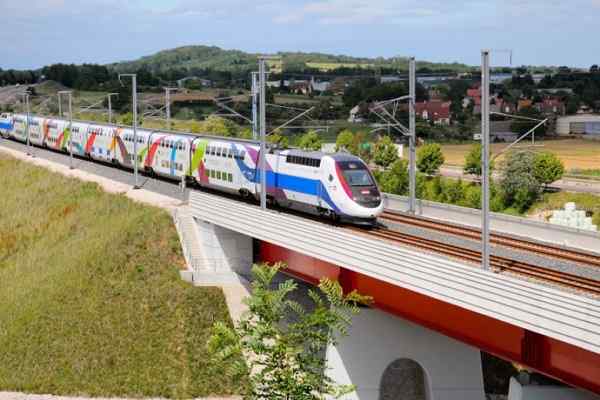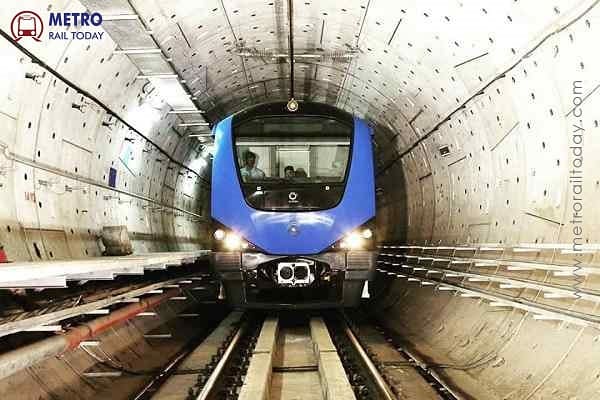 CMRL achieves second Tunnel Breakthrough at Thirumayilai for Chennai Metro Phase 2 Corridor 4
CMRL achieves second Tunnel Breakthrough at Thirumayilai for Chennai Metro Phase 2 Corridor 4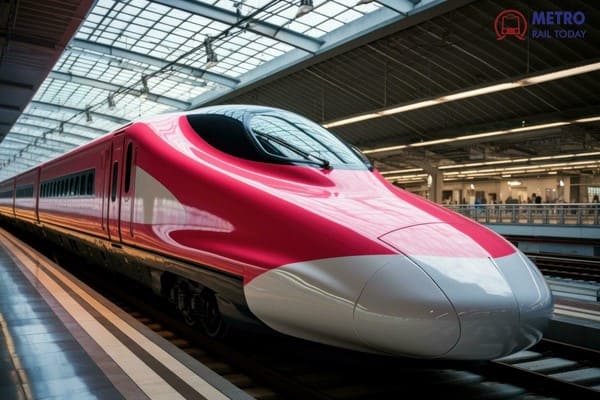 NHSRCL invites Single Tender from BEML for Bullet Train Rolling Stock Package
NHSRCL invites Single Tender from BEML for Bullet Train Rolling Stock Package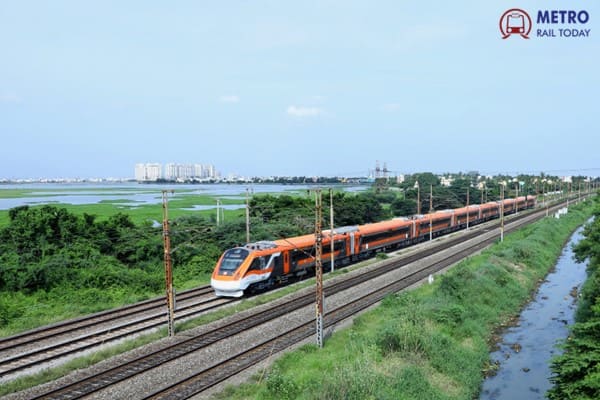 Railway Minister reviews progress of Ahmedabad–Dholera Semi High-Speed Rail Project
Railway Minister reviews progress of Ahmedabad–Dholera Semi High-Speed Rail Project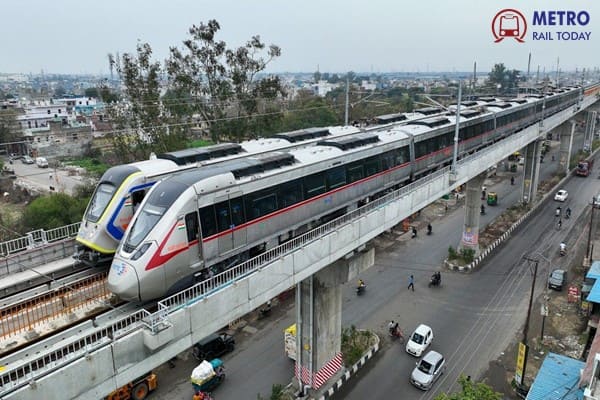 National Planning Group reviews key Rail & Metro projects under PM GatiShakti
National Planning Group reviews key Rail & Metro projects under PM GatiShakti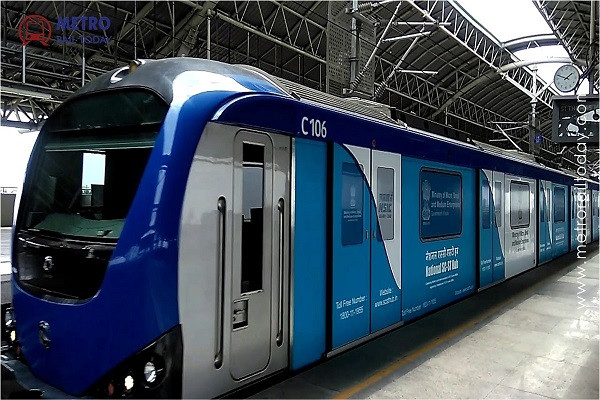 CMRS approves Driverless Metro Operations on first stretch of Chennai Metro Phase 2 Corridor 4
CMRS approves Driverless Metro Operations on first stretch of Chennai Metro Phase 2 Corridor 4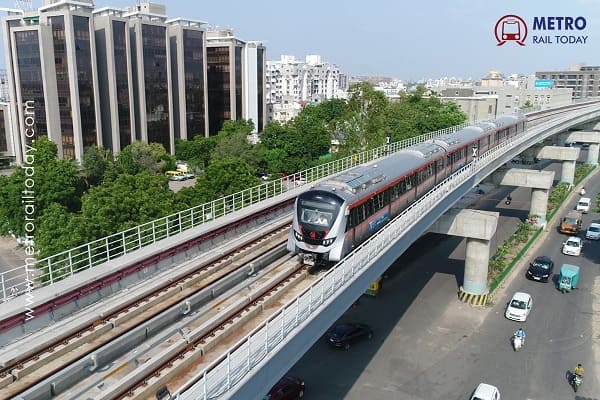 J Kumar Infraprojects completes Final Tunnel Breakthrough for Surat Metro Phase 1 Project
J Kumar Infraprojects completes Final Tunnel Breakthrough for Surat Metro Phase 1 Project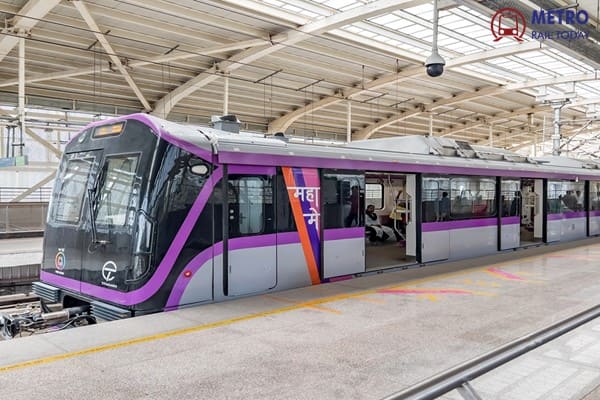 Apurvakriti Infrastructure awarded Ballastless Track Contract for Pune Metro Reach-1 Extension
Apurvakriti Infrastructure awarded Ballastless Track Contract for Pune Metro Reach-1 Extension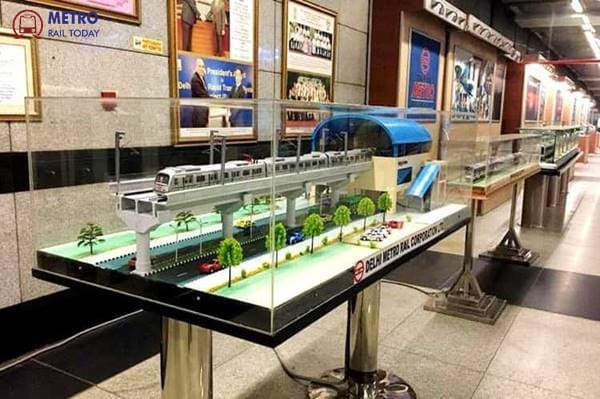 SAM India Builtwell bags first ₹222.76 Crore Civil Contract for Delhi Metro Phase V
SAM India Builtwell bags first ₹222.76 Crore Civil Contract for Delhi Metro Phase V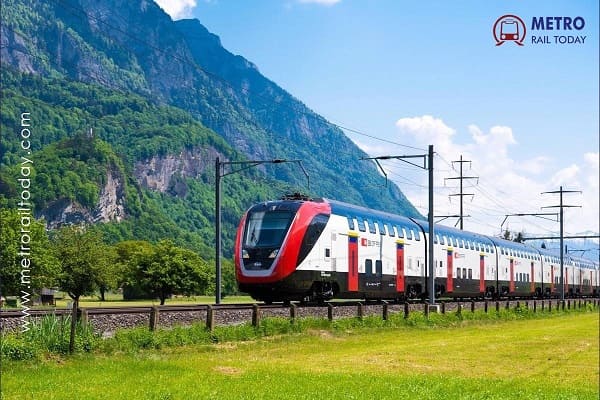 HRIDC conducts Investors Pre-Bid Meeting for Haryana Orbital Rail Corridor
HRIDC conducts Investors Pre-Bid Meeting for Haryana Orbital Rail Corridor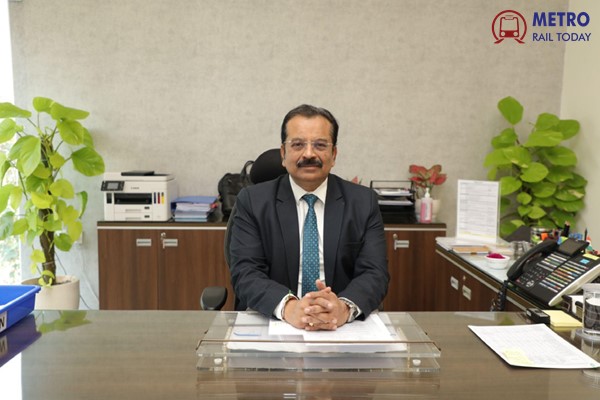 NCRTC Chief Shalabh Goel appointed as General Manager of Central Railway
NCRTC Chief Shalabh Goel appointed as General Manager of Central Railway
DPR submitted for 72-km Metro-cum-RRTS corridor connecting Ghaziabad to Noida Airport
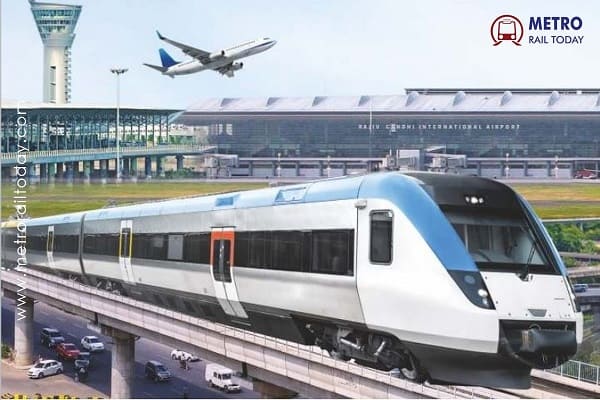
Noida, India (Metro Rail Today): National Capital Region Transport Corporation (NCRTC) has recently submitted the Detailed Project Report (DPR) for the Regional Rapid Transit System (RRTS) and Metro Line, aiming to enhance connectivity between Noida International Airport (NIA) and various parts of Delhi along with the National Capital Region (NCR) cities.
According to the announcement made by the Yamuna Expressway Industrial Development Authority (Yeida) on April 5, 2024, NCRTC has forwarded the comprehensive DPR for the Regional Rapid Transit System (RRTS) combined with the Metro line. This ambitious project is slated to establish a seamless connection between Noida airport and other prominent locations across Delhi and NCR cities.
An official from Yeida mentioned that they will meticulously analyze the DPR and subsequently forward it to the Uttar Pradesh government for the essential approval. Upon receiving the green signal, further actions will be initiated to advance the project.
The proposed route spanning 72.29 kilometers from Ghaziabad to NIA in Jewar is envisioned to encompass a total of 22 stations, evenly distributed between 11 RRTS and 11 Metro stations. Additionally, provisions for 13 future stations have been included in the DPR to accommodate potential expansions, as highlighted by officials.
The DPR has delineated the project into two distinct sections for streamlined implementation:
- Section I: The elevated stretch spanning 39.39 kilometers from Ghaziabad to Greater Noida’s Kasna (Ecotech VI).
- Section II: Encompassing 32.90 kilometers from Kasna (Ecotech VI) to Noida Airport.
Notably, Section I is anticipated to witness higher passenger traffic owing to its proximity to densely populated regions of Ghaziabad and Greater Noida. Conversely, Section Two primarily traverses rural areas, as outlined in the DPR.
Section I, with a length of 39.39 kilometers, is estimated to incur a cost of ₹13,055.10 crore. The proposed alignment commences from Ghaziabad RRTS station, navigating through various key points before culminating at Ecotech VI in Kasna. This segment will absorb the 10-kilometer Aqua Line Metro extension project, leading to substantial cost savings.
Furthermore, Section I will seamlessly integrate with Delhi Metro at Ghaziabad and Aqua Line at Char Murti Chowk and Alpha I station near Pari Chowk.
On the other hand, Section II, spanning 32.90 kilometers, will connect Sector Ecotech VI to Noida airport at the ground transport center. This segment, estimated at ₹6,988.50 crore, will incorporate four RRTS stations and one Metro station. The proposed alignment will traverse through several villages before reaching Noida airport, integrating with the proposed light rail transit corridor aimed at connecting the airport with Sector 21.
According to the DPR, travel time from Ghaziabad to the airport is expected to be reduced to 37 minutes upon project completion.
Moreover, the DPR outlines provisions for 10 future stations, emphasizing the flexibility to accommodate potential expansions. The operational plan includes two types of trains: one operating at a faster speed of 114 kilometers per hour, halting at limited stations, and the other traveling at a normal speed of 87 kilometers per hour, serving all RRTS stations.
Authorities have affirmed that rapid rail trains will exclusively halt at RRTS stations, while metro trains will serve all stations along the route.
The project received in-principle approval from the state government in December 2023. It is anticipated to be operational by April 2030. Yeida issued the work order to NCRTC in January 2024 to prepare the DPR, which has been submitted within three months.
The submission of the Detailed Project Report by NCRTC marks a significant milestone towards realizing enhanced connectivity and transportation efficiency within the National Capital Region. Once approved and executed, the RRTS and Metro Line project is poised to revolutionize commuting experience, fostering economic growth and development across the region.





